Search Results
Showing results 1 to 20 of 22
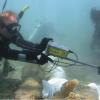
Excavating and Mapping Under Water
Source Institutions
In this archaeology activity, learners consider ways in which excavating an underwater site is different from excavating a terrestrial site.
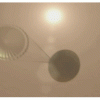
Landing the Rover
Source Institutions
In this team design challenge (page 19-24 of PDF), learners "land" a model Lunar Rover in a model Landing Pod (both previously built in activities #3 and #4 in PDF).

Clean Water: Is It Drinkable?
Source Institutions
In this activity, learners simulate nature's water filtration system by devising a system that will filter out both visible and invisible pollutants from water.
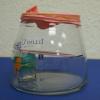
Design and Build a Barometer
Source Institutions
In this activity, learners make a barometer, an instrument to measure change in air pressure.

Design a Lunar Rover!
Source Institutions
In this team design challenge (page 2-10 of PDF), learners design and build a model of a Lunar Transport Rover that will carry equipment and people on the surface of the Moon.

Design a Landing Pod!
Source Institutions
In this team design challenge (page 11-18 of PDF), learners design and build a Landing Pod for a model Lunar Rover (previously built in activity on page 1-10 of PDF).

3-2-1 POP!
Source Institutions
In this physics activity, learners build their own rockets out of film canisters and construction paper.

Mapping Sea Level Rise
Source Institutions
In this activity related to climate change, learners create and explore topographical maps as a means of studying sea level rise.

A Degrading Experience
Source Institutions
In this activity on page 27, learners perform an experiment to learn about how different types of marine debris degrade and how weather and sunlight affect the rate of degradation.

For Your Eyes Only
Learners build particulate matter collectors--devices that collect samples of visible particulates present in polluted air.
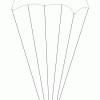
The Parachuting Egg
Source Institutions
In this activity, learners work in groups to design a parachute out of household items that keeps an egg secure when dropped from a certain height.

Properties of Dust
Source Institutions
In this activity, learners carry out a scientific investigation of dust in their classroom. Learners produce an analysis on graph paper of the dust they collect over the course of a few days.
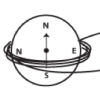
How Do We Convert Mechanical Energy into Electrical Energy?
Source Institutions
In this activity, learners use a compass, powerful magnet, and copper magnet wire to build a special generator known as a dynamo.
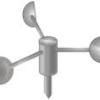
Paper Cup Anemometer
Source Institutions
In this meteorological activity, learners get to build their very own anemometer (instrument for measuring wind speed) using a paper cup.

Size, Scale and Models
Source Institutions
In this activity, learners take measurements and create charts to learn about the size of dinosaurs and their relative scale to humans.

Oil Spill Cleanup
This hands-on experiment will provide learners with an understanding of the issues that surround environmental cleanup.

As the Rotor Turns: Wind Power and You
Source Institutions
In this engineering activity, learners will get acquainted with the basics of wind energy and power production by fabricating and testing various blade designs for table-top windmills constructed from
Signs of Change: Studying Tree Rings
Source Institutions
In this very hands-on lesson, learners will investigate dendrochronology (the study of tree rings to answer ecological questions about the recent past) and come up with conclusions as to what possible

Automotive Emissions and the Greenhouse Effect
Source Institutions
In this activity about global climate change, learners will conduct an experiment and collect data to compare the amount of carbon dioxide (CO2) in four different sources of gases.

The Effects of Acid Rain
Source Institutions
In this environmental science activity (page 4 of the PDF), learners use vinegar and chalk to observe the effect of acid rain on various building materials and plant life.
